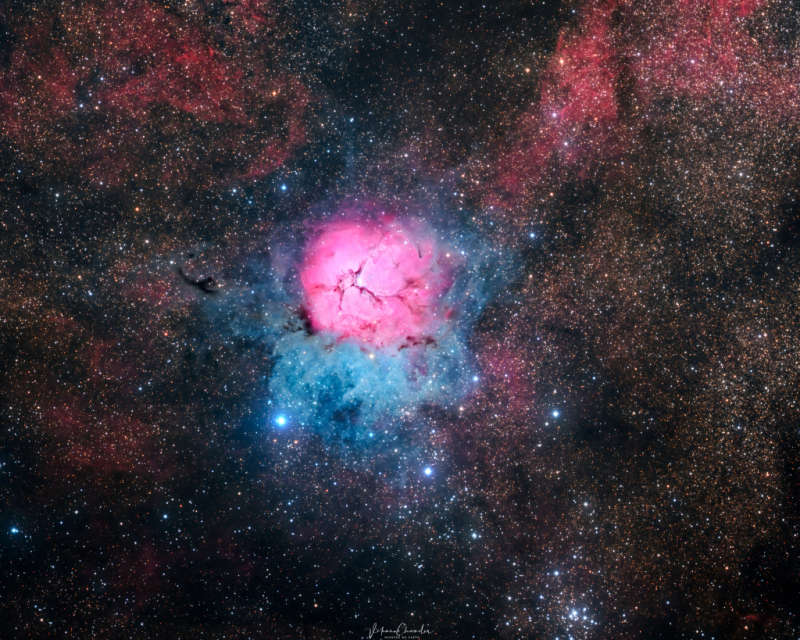Credit & Copyright: Vikas Chander
Explanation:
The beautiful Trifid Nebula is a cosmic
study in contrasts.
Also known as M20, it lies about
5,000 light-years
away toward the nebula rich
constellation Sagittarius.
A star forming region in the plane of our galaxy,
the Trifid does illustrate three different types of
astronomical nebulae;
red emission nebulae dominated by
light from hydrogen atoms,
blue reflection nebulae produced
by dust reflecting starlight, and
dark nebulae where
dense dust clouds appear in silhouette.
But the red emission region, roughly separated into three
parts by obscuring dust lanes, is what lends the Trifid its
popular name.
Pillars and jets sculpted by newborn stars, above and right of
the emission nebula's center, appear in famous Hubble Space Telescope
close-up
images of the region.
The Trifid Nebula is about 40 light-years across.
Too faint to be seen by the unaided eye, it almost covers the
area of a full moon in planet Earth's sky.
Open star cluster M21 just peeks into this telescopic field of view
along the bottom right edge of the frame.
1999 2000 2001 2002 2003 2004 2005 2006 2007 2008 2009 2010 2011 2012 2013 2014 2015 2016 2017 2018 2019 2020 2021 2022 2023 2024 2025 2026 |
Январь Февраль Март Апрель Май Июнь Июль Август Сентябрь Октябрь Ноябрь Декабрь |
NASA Web Site Statements, Warnings, and Disclaimers
NASA Official: Jay Norris. Specific rights apply.
A service of: LHEA at NASA / GSFC
& Michigan Tech. U.
|
Публикации с ключевыми словами:
M 20 - Trifid nebula - Трехраздельная туманность
Публикации со словами: M 20 - Trifid nebula - Трехраздельная туманность | |
См. также:
Все публикации на ту же тему >> | |
